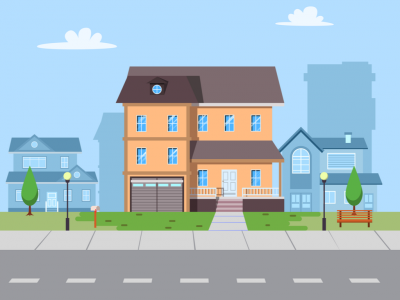
10 Resale Value Factors to Consider Before Buying Your Next House
When you are shopping for a home, selling it later may not cross your mind. But it should! Purchasing a home is a major investment. You want your new house to meet your current needs while also providing future resale value. Think of it as protecting your investment.
What are the most important factors? Since every real estate market is different, the answer varies. Wherever you’re shopping for a home, your Accredited Buyer’s Representative can provide vital local perspectives on resale value.
Generally speaking, you want your home to appeal to the largest number of future buyers. Factors to consider:
1. Number of bedrooms
Bedrooms are essential for sleeping, but they also offer potential space for a home office, craft room, music studio, exercise space, or guest room.
2. Number of bathrooms
Homes with only one bathroom can be at a significant disadvantage when competing against dwellings with two or more baths. In some high-end markets, each bedroom should have a dedicated bathroom.
3. Single-floor living
As the U.S. population ages, more future buyers will consider one-floor living essential. That means at least one main bedroom and a full bathroom are located on the main floor, and a laundry area.
4. Storage
Large closets, attic space, basements, garages, and other storage areas will make a home more attractive to future buyers and provide a more enjoyable living experience for you too.
5. Living area layout
Open floor plans that join the kitchen, dining, and living room spaces have been popular in recent decades. It’s an excellent way to make homes feel larger and allow a free flow of traffic and conversation in a home.
While open floor plans are generally viewed as a positive resale factor, they are not well suited to carving out private spaces for working from home, reading, and studying. These activities have taken on greater importance during the coronavirus pandemic. Time will tell if buyers become less enamored with open floor plans.
6. Location, location, location
Convenient access to shopping, dining, good schools, parks, and other amenities will help preserve or increase your home’s value. Neighborhood features that typically boost resale value include walking trails, good sidewalks, community pools, and recreation centers.
Also, consider access to major streets and highways, as well as public transportation options. While it’s difficult to predict how the pandemic will impact future work-from-home trends, ease of commuting has traditionally been a critical resale value consideration.
7. Size of yard
Large lots may require a bigger landscaping budget and extra maintenance chores. But they also provide options to expand living spaces beyond your home, including patios, decks, vegetable gardens, and play areas. If two homes are virtually identical, your resale value will probably improve if you select the one with more exterior space and rely on resale-friendly landscaping.
8. Noise
Sipping coffee on the deck will be less enjoyable if you live near a busy road or a local airport’s flight path. Noise pollution can also be a problem inside your home, especially if you want to open your windows for fresh air.
9. Total square footage
Size matters, but it may be a bad idea to buy the biggest house in a neighborhood. A small or medium-sized home in an area filled with larger homes can provide a better return on your investment.
10. Future development
If the land beyond your home is undeveloped, find out how it is zoned and consider how your views may change. Also, research government plans to add or widen roads in your community or build new facilities.
New developments can have positive or negative effects on your future resale value. A new park for the kids? Winner! A new four-lane road in the field behind your home? Ouch!
Similarly, urban dwellers should consider whether nearby lots might become multi-family structures, potentially blocking sun and views and limiting street parking options.
